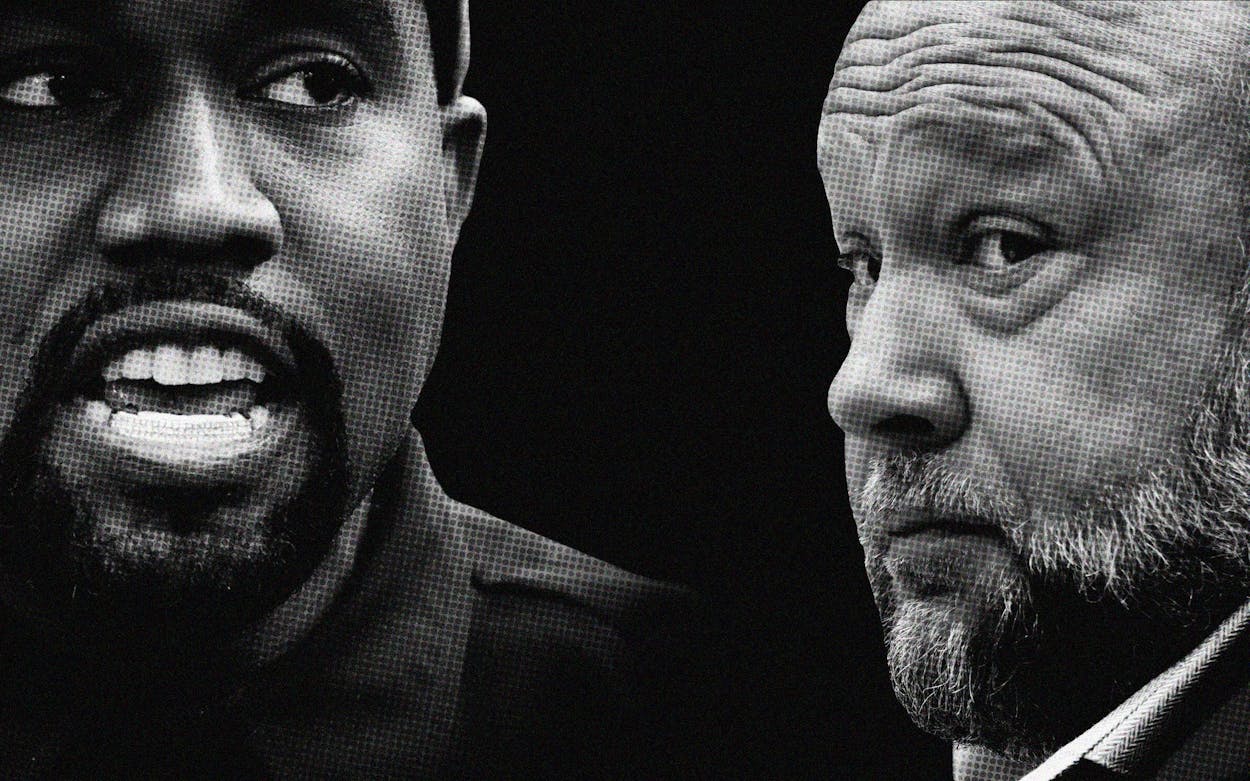On Thursday, Alex Jones hosted the most famous guest he’s ever had in Infowars’s Austin studio: Ye, the rapper who legally changed his name from Kanye West last year. For three long hours, Ye, accompanied by his new sidekick, the white supremacist Nick Fuentes, made headline-worthy remark after remark, mostly about Nazis.
How does Ye feel about Nazis? He loves them, and Hitler too. Ye denied the Holocaust several times, praised the singer Ray J (whose 2007 release of a sex tape with Ye’s ex-wife, Kim Kardashian, prompted Kardashian to sue to have the tape suppressed), performed an ongoing impression of Israeli prime minister Benjamin Netanyahu, and dictated the terms of the show to Jones repeatedly over the course of the episode. Ye did not seem to be speaking from a healthy place, which is perhaps unsurprising for an artist who has repeatedly, and very publicly, struggled to accept a diagnosis of bipolar disorder.
One of the main headlines that emerged from the interview was that Ye was so vociferous in his praise of Hitler that he made Alex Jones—yes, Alex Jones—uncomfortable. That’s not entirely untrue, but it’s also an oversimplification of the dynamic. Jones wasn’t uncomfortable enough to cut short his briefly relevant show, or to challenge Ye’s praise of Nazis or his denial that the Holocaust took place. (Jones compromised by declaring that “Hitler definitely killed some people,” give or take six million Jews). Jones capitalized on the attention Ye was driving by bringing in as many guests as he could fit onto the set. At one point, the show featured Fuentes, Jones, Ye, Infowars host Owen Shroyer, and “Stop the Steal” rally organizer Ari Alexander all sitting in the studio, with conspiracy theorist Laura Loomer joining by phone.
What Jones did do was repeatedly offer Ye off-ramps for his more inflammatory statements, which the rapper repeatedly refused to take. The Infowars host tried to guide Ye—who until recently had been a successful partner with fashion labels such as Balenciaga and Adidas—to say what he liked about the Nazis was the design of their uniforms, only for Ye to clarify that “there are a lot of things I love about Hitler.”
What Jones was doing was part of the Infowars playbook. Jones and his guests typically spend a lot of time offering media criticism, arguing that when mainstream news outlets publish quotes from the show, they are cherry-picked and out of context. Jones and Shroyer regularly make and host transgressive statements that attract attention, and then offer half-hearted walk-backs that they can use to claim that those who reported on the initial statements are the real sensationalists. Jones will, say, question whether the Sandy Hook massacre occurred, then declare that he’s not saying it didn’t, before concluding that he finds the whole affair suspicious, and then blame the news media for failing to quote him accurately. It’s an old game, and one that has cost him dramatically in court this year. (On Friday, Jones personally filed for bankruptcy protection in federal court in Texas, after having previously done so on behalf of his companies.)
Jones and Shroyer tried to employ the playbook with Ye. Late in the broadcast, Shroyer chastised the news media whose attention he and his boss were reveling in. “The story about this shouldn’t be about Nazis,” Shroyer began, attempting to claim that the real problem Ye was there to expose was transgender people, and gun violence in Chicago, and whatever bugbear the host wanted to rant about at any given moment. What was interesting on Thursday’s broadcast, though, was Ye’s refusal to play along. He accepted no attempts to temper his statements or put them into a different context. When Shroyer said that the story of the interview shouldn’t be about Nazis, Ye interrupted him: “I like Nazis, though,” he insisted.
Ye is hardly the only antisemite that Alex Jones has invited on his show. He is, however, the only such guest who’s more famous than the host. Jones is a loud and forceful personality accustomed to dominating every room he’s in. (Even courtrooms!) But on Thursday’s broadcast, he was dramatically outshone by Ye, who doesn’t need Jones’s platform or audience, and who has spent his entire career saying what he intends to say, not what the white person next to him would rather he say. Accordingly, Jones spent the three hours not just deferring to Ye but being downright obsequious. When Jones interrupted him, Ye’d warn him not to do that, and Jones would nod, chastened. Ye would correct Jones when the host used language Ye didn’t approve of. When Jones uttered the words “I hope,” Ye told him to say, “I pray,” and when Jones did so, he corrected him to “I pray to Jesus Christ,” and Jones obeyed. The exchange was preserved on the internet, as Jones—who is still banned from Twitter—tweeted it from Ye’s phone live on the air, hours before Ye’s own account was suspended for twelve hours.
In the end, the appearance represented its own little Infowar between the two men, and Jones eagerly, and shockingly, accepted second place. To paraphrase Ye, he offered a toast to the douchebag, indeed.
- More About:
- Alex Jones








